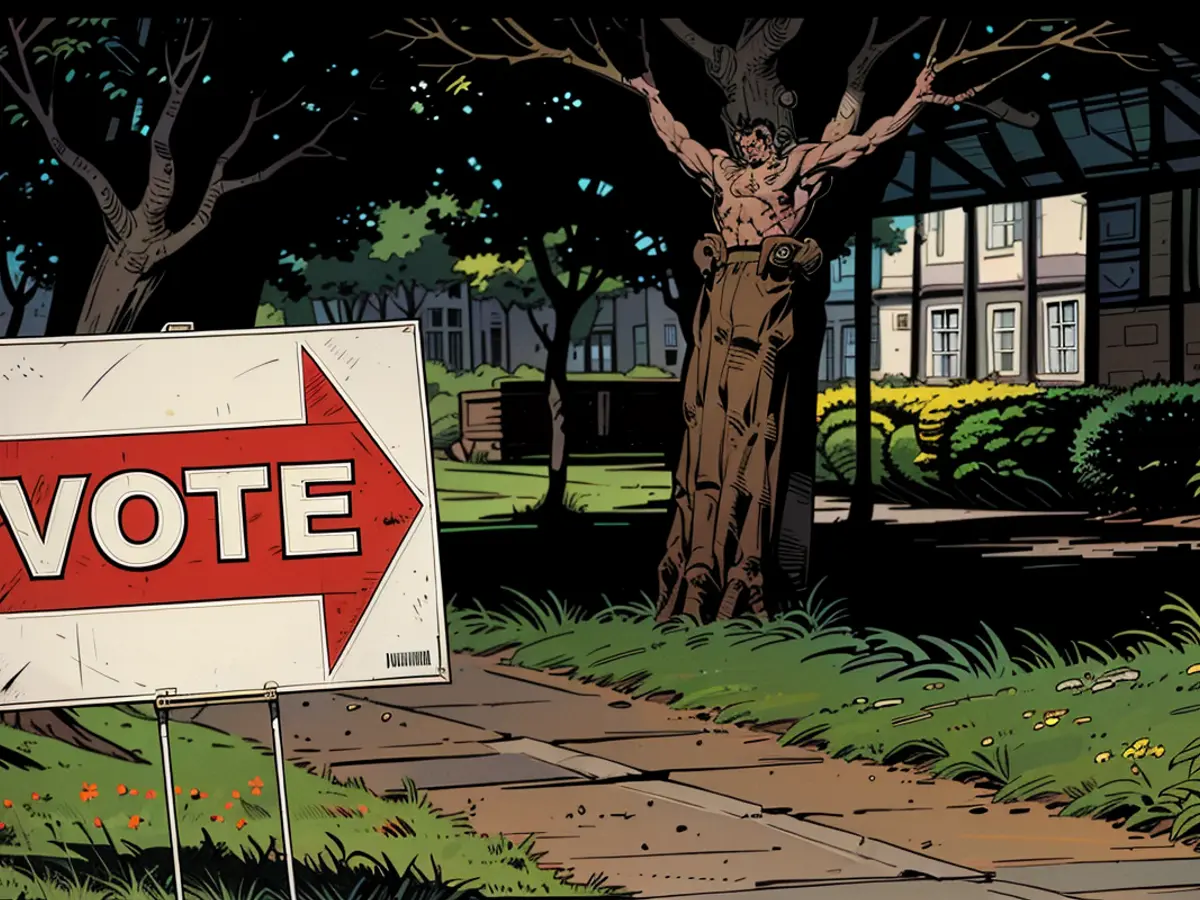A substantial number of Republicans harbor doubts about the fairness of the election.
Just about two weeks prior to the U.S. elections, numerous Republicans harbor significant reservations regarding the election's fairness. Issues such as tampered voting machines and improperly registered migrants have sparked concerns. The dwindling faith in a fair election holds reason behind these doubts.
Although there's no empirical evidence suggesting 2020's election was fraudulent, trust in a reliable election outcome has waned. According to an NPR/PBS News/Marist poll, a staggering 58% of U.S. citizens are concerned that the election result on November 5 could be manipulated. Of these, a whopping 86% are Republicans with 33% being Democrats.
Former President Trump largely contributes to the erosion of voter faith in a transparent election process. At his rallies, he instills misleading claims and borderline falsehoods, frequently questioning the election's integrity, forecasting enormous numbers of illegal immigrant voting, and emphasizing the vulnerability of automated vote counting to deceit. His views find favor among Republicans: According to a Gallup poll, only 28% of Republicans trust that votes will be accurately counted, while 84% of Democrats do.
Congressional skepticism
In September, Trump posted on his Truth Social platform: "The Democrats are working tirelessly to procure millions of votes from Americans residing abroad. They are preparing to cheat!" His claim finds substantial support from Rep. Scott Perry, a prominent Republican figure involved in efforts to overturn the 2020 election outcome. Along with five other house members, Perry filed a lawsuit against the government in Pennsylvania this month, aiming to bar military personnel and overseas Americans from voting. The legislators alleged that election officials in their state were insufficient in verifying military personnel and their spouses voting from overseas.
The skepticism is not limited to the six Pennsylvania congress members. Nearly half of Republican congress members have voiced concerns about the election's integrity on social media, as reported by an analysis by the "Washington Post". Alongside a stream of false accusations of election fraud in 2020, more than 230 Republicans cited the Democratic Party's attempts to manipulate the upcoming election through lawsuits and registering foreign citizens to vote.
"Last true election"
Elon Musk, an open Trump supporter, is also contributing to undermining public faith in a fair election. He indulges in conspiracy theories and often skews poll numbers. At a rally in Pittsburgh on Sunday, he incited the audience to publicize "all types of concerns about voting" on X. The election in November could potentially be the "last true election".
Nearly four years ago, Donald Trump prematurely proclaimed himself as the winner of the election. Subsequently, his supporters stormed the Capitol in Washington. Just about two weeks before the election, the question is not only who will win, but also what may transpire post-election.
The storm at the Capitol in Washington on January 6, 2017, may serve as a cautionary tale as the election date approaches. The tense atmosphere surrounding the 2020 election results, with numerous Republicans expressing concerns about the election's integrity, has raised questions about potential unrest after the November 3 election.
The fears of election manipulation and fraud, fueled by misleading claims and falsehoods from former President Trump and certain Republican leaders, have led to a significant erosion of faith in a fair election process. The storm on the Capitol in Washington two years ago serves as a reminder of the potential consequences of such deeply held suspicions and distrust.








